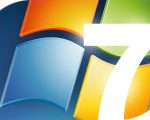Colossal Patch Tuesday addresses 31 Windows, IE8 vulnerabilities

Just when it appeared Windows and its associated services were looking more stable month after month, Microsoft chose June to tackle a plethora of vulnerabilities including no fewer than 14 that its security engineers believe could be exploitable within the next 30 days.
Microsoft Security Response Center engineers Adrian Stone and Jerry Bryant were audibly panting as they delivered the news to Microsoft customers today. One critical remote code execution vulnerability that's being treated very seriously affects a much older version of the server product, Windows 2000 Server with Service Pack 4 serving as domain controllers, and running Lightweight Directory Access Protocol. "While it's ranked as a '1,' which means we expect it to be easily exploitable over the next 30 days after [the patch] is released," explained Security Program Manager Lead Adrian Stone, "...it was privately disclosed to us. A security researcher worked with MSRC responsibly to make sure that we did address the vulnerability and release it without any knowledge of the vulnerability to date. It's not being actively exploited, nor is there any data publicly available at this time that talks about [it] in in-depth, technical detail."
Not quite a Firefox release candidate, it's 'Beta 99'

Download Mozilla Firefox 3.5 Beta 99 for Windows from Fileforum now.
Already, Mozilla Firefox testers have already swallowed one unanticipated renumbering of the browser, so perhaps they'll be more acclimated to this development from last night: With two successive weekends of testing having been completed, and with kinks apparently remaining in what Mozilla wanted to call its Firefox 3.5 Release Candidate, the candidate for the Candidate was publicly released today anyway…just not as the RC.
Some EU roaming charges could plunge 80% or more in July

With what European telcos have been charging their customers for mobile movie downloads, they might have been able to fund the entire movie. Smartphone users in Ireland, for example, were being charged as much as €6.82 ($9.55 USD) per megabyte of bandwidth, when their phones roamed outside their service areas. Telcos had been blaming the high cost of interstate commerce for these extraordinary roaming rates.
But an agreement announced yesterday between the European Council of Ministers -- the coalition of telecom ministers of the EU's member states -- will effectively force those states to find a way around that problem. Starting Wednesday, July 1, telcos may only charge no more than €1 per megabyte (about $1.40 USD) for roaming download charges. In addition, SMS messaging charges across service boundaries (which usually means, across countries' borders) will be capped at €0.11, which is about one-third of what some Portuguese customers have been paying.
Speed crown changes hands: Safari 4 slows down, now behind Chrome

Download Safari 4 for Windows 4.30.17.0 from Fileforum now.
Perhaps the absence of Apple CEO Steve Jobs, or any hint of his existence, will go down as the biggest disappointment of this year's WWDC conference in San Francisco. But it may be on the top of a list of more than one item, and down that list not too far behind Jobs' no-show, there is this news: The final release version of Safari 4 is not the fastest Web browser on Windows, despite what SVP Phil Schiller told attendees today.
Apple releases its Safari 4 browser today

As of about 10:45 am PDT this morning, the "beta" label still appeared on the download page for Safari 4, though we expect the label to be dropped perhaps within the hour.
Betanews will certainly be testing Schiller's claim that Safari 4 is the fastest Web browser on all platforms, but throughout the beta period, it did run circles around Firefox and even bested Google Chrome. The last beta build to be distributed, however, encountered performance problems in the Windows 7 RC that it didn't face in Windows Vista SP2. We'll find out whether Apple corrected those deficiencies in time.
Expect 250% Firefox speed blast after 3.5 RC release

If last Friday's Release Candidate for Mozilla's Firefox 3.5 is truly indicative of the final release (last week's was not, unfortunately), then how much faster performance will Firefox users expect to see the moment they install it? When the organization first started seriously ramping up the development of its TraceMonkey JavaScript engine last year, we said that speed boost would have to be in the triple-digit range to keep up with competition, as well as to meet the high expectations Mozilla set.
Today, Betanews tests have a preliminary answer, and it's exactly what developers have been looking for: A speed score of 253% that of the Windows 7 RC -- better than two and a half times the speed of version 3.0.10 -- and 222% that of Windows Vista SP2, in tests conducted with the "Beta 99" release candidate build posted last Friday, versus the current stable Firefox release. The general public may get a chance to see that performance improvement later this week, assuming this time Mozilla releases Firefox 3.5 RC to the general public as planned.
Bing vs. Google face-off, round 5

After last week's scuffle with filtered image results, we left our two major Web search engines in a tie-up, with the score Bing 3, Google 3 after six heats. For the tie breaker for this week, we're going to throw a curve ball.
A great search engine has to be responsive and helpful and informative for someone who is completely in the dark, not only about the topic he's interested in, but about the nature of the Internet. Some of our comments this week have taken us to task for not using the smartest queries -- for instance, one person asked, why couldn't someone have searched on IMDB.com for Rod Taylor instead of on Google or Bing? The answer there is, IMDB may be no better than either Bing or Google at helping someone locate an actor based on minimal information. We created a "backwards" query for this test because that's the type of query inquisitive folks may very well create for themselves.
Bing vs. Google face-off, round 4

The big problem which massive multimedia online indexes face today, which may only get worse before it can ever get better, is with their capability to shield certain viewers from content they do not want appearing on their computer. Regardless of the entire debate over whether the Internet should have content regulation, individuals should have the right not to see what they do not wish to see, and they should also have the right to prevent their children from seeing it as well. It may be everybody's Internet, but in the end, it's my computer and it's your computer.
Since we started our Face-off series with Google and Bing just last Monday, we've gotten a lot of very positive comments and accolades from readers (thank you so much), plus we've received suggestions that we pit the two search engines together to see which one is the most capable of filtering out the junk. What do you not want to see on your computer, and what things about you personally do you not want others to see on their computers -- and which search engine cares the most about answering those questions?
Verizon deploys its cloud, complete with admins for rent

As a recognized public utility already, Verizon may be one of the best suited organizations on the planet to provide a monthly billable service to businesses, that just happens to include computing. That's the basis of the US' number one carrier's announcement yesterday. But what is it that Verizon plans to sell? With something as nebulous as cloud computing, it's often difficult to determine just what it is that a service provider is actually offering, and whether it's on a par with competitive brands. And like much of its competition, Verizon "buries its lead" with paragraphs and paragraphs of introduction about how big the cloud is these days, and how competitive business is these days, and how crappy the economy is these days.
What's the news in all of this? A company that already has a huge connectivity infrastructure is leveraging it to deliver a service for businesses to offload not only their applications, but the administrative responsibility for those apps as well, to Verizon for a monthly fee.
Up front: Telecoms can keep their wiretap immunity...for now

When the President of the United States grants authority to a private entity for it to conduct operations that he says are in the national interest, there typically is very little that a single federal judge can do to overturn that authority. So perhaps it should be no surprise that US District Court Judge Vaughn Walker yesterday upheld President Bush's grant of immunity from civil lawsuits to telecommunications companies including AT&T, for working with the National Security Agency in anti-terrorist operations. But did Judge Walker leave bread crumbs for plaintiffs in those suits to seek redress from the former president himself? This morning, the EFF has found some crumbs.
Federal judge tosses warrantless wiretap suits, but not too far
Bing vs. Google face-off, round 3

Download Microsoft Bing Maps 3D 4.0 from Fileforum now.
If you've ever used any of the major travel sites like Travelocity or Priceline to plan a business trip, you may have already encountered what I consider to be their principal deficiency thus far: They don't make hotel suggestions based on the hard, raw data about what amenities are in the general vicinity, and what travelers want to see or to have close at hand.
Microsoft 'extends' Windows: What does that mean?

This morning in What's Now | What's Next, we reported on the early word from a keynote address to the Computex trade show in Taiwan, from Microsoft Corporate Vice President Steven Guggenheimer. What might have been big news there was already leaked in advance: Windows 7 will be available to the public October 22. The #2 story was supposed to have been the company casting its net wider, making Windows available on a broader range of devices.
Yet in Taiwan, where IT device production is shifting away from PCs and toward smaller, more customized devices, the question is just how broad that new range will be. The industry there (which locals refer to as "ICT" for "information and communications technology") has drawn a borderline around a concept called smartbooks -- devices whose blueprints can be assembled using pre-existing intellectual property that's licensed to vendors, typically using ARM processors. Meanwhile, Microsoft has drawn some borderlines of its own -- again -- by way of announcing that Windows may be addressing new market segments in the near future, extending its reach to new platforms. But now, there's dispute and confusion over whether the ICT industry's boundaries and Microsoft's have any overlap.
Opera 10 beta sports a new look, 23% boosted performance

Download Opera 10 for Windows Build 1551 Beta 1 from Fileforum now.
The developers at Opera Software have been publicly working with version 2.2 of the Presto rendering engine for its premier Web browser since last December. Their goal has been to implement Web fonts for Scalable Vector Graphics without sacrificing performance or other standards support. Conceivably, this could allow sites to deploy both TrueType and SVG fonts in user-scalable sizes scaled to fit the current window size, as this recent Opera test pattern demonstrates. (Right now, Firefox 3.5 Beta 4 supports some scalable TrueType, but not to the degree that Opera does.)
Windows 7 to be released October 22

The news comes in advance of comments being planned for the Computex conference in Taiwan early tomorrow morning, by Microsoft Corporate Vice President for OEMs Steve Guggenheimer. There he is scheduled to officially deliver the news that Windows 7 general availability worldwide will begin on Thursday, October 22.
Microsoft's spokesperson gave Betanews a heads-up to expect comments from Guggenheimer concerning a program being called Windows Upgrade Option. That's precisely the title of an FAQ that was leaked to the public last month by the technology blog TechARP. That FAQ, which appeared to contain language directly from Microsoft, spoke about a low- or no-cost upgrade option for recent purchasers of consumer SKUs of Windows Vista.
Bing vs. Google face-off, round 2

The way we left things yesterday, we gave Microsoft's newly revamped Bing search engine some moderately tough, everyday search tests, and gave Google the same treatment. After three heats, the score thus far is Bing 2, Google 1, with Bing performing quite admirably in the computer parts shopping department.
Search engines are fairly good for finding something you know you're searching for. In the real world, folks don't often know what or who it is they're searching for, which is why they're searching for him. So suppose someone sends you out on the Internet to find...
© 1998-2024 BetaNews, Inc. All Rights Reserved. Privacy Policy - Cookie Policy.
